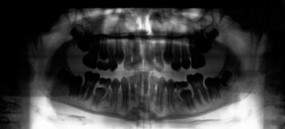Forensic Odontology Education
Forensic Dentistry Schools & Colleges
|
Get FREE Info From Schools |
Want to become a forensic dentist? Discover the best Forensic Odontology education options, including online & campus forensic odontology schools and programs.
The practice of forensic dentistry is ancient.. There are reports of its usage dating back almost 2,000 years, and those are just the ones that we know of.
While the study and application of identifying people based on dental information is much more advanced today than it has ever been before, the basic idea of it has been around for millennia.
As with any profession you aim to take seriously, its always a good idea to explore the history of your prospective vocation. By understanding where its come from and where it currently is, you can get a sense of where your specialty will be heading in the future. And thats information that can help guide you along your career path to success.
History of Forensic Odontology
The most famous and brutal instance of forensic dentistry in ancient history occurred around 50 AD. At that time, Nero was the Emperor of Rome and his mother, Agrippina, desperately wanted one of her rivals, Lollia Paulina, dead. She ordered soldiers to track her down, kill her, and bring Agrippina the womans head as proof of her death.
The soldiers did as commanded, but when they brought the Emperors mother the head of Paulina, Agrippina couldnt be sure that the dead woman was really her rival.
But when she opened the mouth of the dead woman, she was immediately convinced. You see, she had recognized the discolored front tooth of her rival in that mouth, and so she started the two thousand year history of forensic dentistry.
It may be difficult to trace that story back to its roots and legitimize it, but there really is no reason to believe it didnt happen. People identify other people by many different physical traitstheir hair, body posture, profile, and walkteeth are just another method of identification.
 |
But over the millennia, forensic odontology became much less of a casual observation, and more of a specialized science.
Matching bite marks to a victim became a way to provide evidence against a suspect. In the 1870s submitting such evidence became common practice in a court of law.
Over the years the practice of identifying remains through dental records or matching bite marks grew to become much more sophisticated and reliable. With the advent of digital technology, not only is it an accurate practice, but also an efficient one.
Forensic odontology has helped convict many criminalsincluding Ted Bundyand will continue to do so as the study evolves to match the needs of the future.
Getting Your Forensic Odontology Education
 |
Becoming a forensic odontologist or dentist isnt something you can do overnight. But unlike a forensic psychologist education, for which you have to complete seven or so years of graduate school, the forensic dentist wont be studying a text book forever. Much of the training for this profession is done on the job.
The first thing you need, though, is a dentistry degreeDDS, DMD. This can be obtained from a great variety of institutions around the world.
If you are wary of going to back to school full time, consider earning your degrees from a web-based college or university. Its cheaper, easier, and faster than having to pack up and move into a dormespecially if you already have an established home or family.
Beyond those degrees, youll need to complete several training and educational tasks, including:
- Attending programs and meetings from approved forensic dentistry organizations
- Apprentice with an approved agency
- Apply for certification
- Pass the exams for certification
- Become recertified every 5 years
|
Get FREE Info From Schools |
Return from Forensic Odontology to Forensic Careers
Return from Forensic Dentistry Education to Criminal Justice Careers





